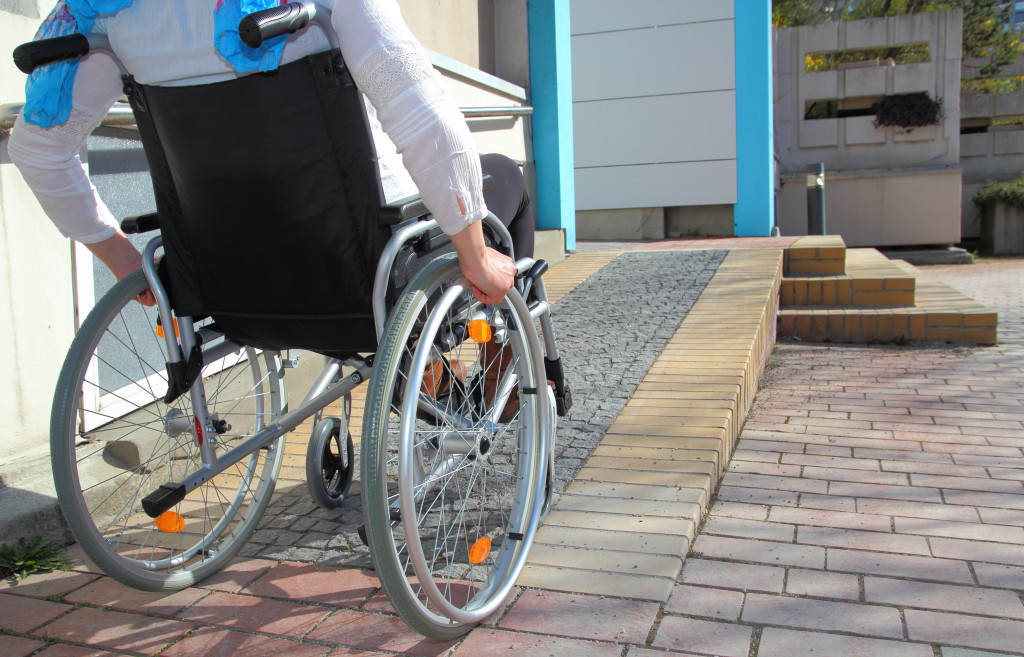- Communication with healthcare providers is essential for proper medical care.
- Request necessary accommodations to ensure comfort and access during checkups.
- Bring a support person to advocate for you and ensure all information is clear.
- Plan by packing medications and equipment, wearing comfortable clothing, and having an emergency plan.
- Take a proactive approach by staying up-to-date with your medical history and asking questions during appointments.
It’s no secret that medical checkups are essential to every individual’s life. From routine annual exams to specific diagnostic tests for an ailment, doctors rely on these checkups to better understand a patient’s health. However, for those who suffer from physical limitations, medical checkups can be a challenging ordeal. It is crucial to understand how these limitations can affect your medical visits and how you can manage them properly.
This blog post will discuss handling physical limitations during medical checkups to ensure everyone receives quality healthcare.
1. Communicate openly with your healthcare provider:
One of the best ways to ensure your medical checkup goes smoothly is to communicate your physical limitations to your healthcare provider. They must know what you can and cannot do so that they can tailor their exam accordingly. This includes any mobility issues, medications, or medical devices you use to navigate your day-to-day life.
Some healthcare providers also ask patients to complete a physical limitations questionnaire before visiting. This is typically used to provide medical staff with an understanding of your current state and how best to navigate upcoming medical procedures.

2. Request accommodation:
Medical practices are required to make reasonable accommodations for patients with physical limitations. If you need accommodations, request them in advance. This could include a wheelchair-accessible exam room, additional time for the exam, or even a sign language interpreter. Don’t hesitate to ask for what you need to make the visit as comfortable and productive as possible.
Some medical practices offer different options for specific exams depending on the test procedure. For one, if you cannot travel to a lab or an X-ray facility due to physical limitations, some medical practices may offer a portable X-ray machine that can be brought on-site. People who need MRI scans but are unable to get into a lying position may request an open and upright MRI scan which can be done in an upright position to accommodate their limitations.
3. Bring a support person:
Sometimes it’s helpful to have someone with you who knows your limitations and can advocate on your behalf. A support person could be a family member, friend, or even a healthcare advocate who can accompany you to the exam. They can help ensure that all information is clear, you understand everything and are comfortable during the procedure.
4. Plan ahead:
Planning is critical for a medical checkup with physical limitations. Different tests and exams require significant preparation, so ensure you have all the necessary information. Here are some things to remember:
a. Pack all your medications and medical equipment
You want to ensure you have all your necessary medications, devices, and other items you might need at the medical practice. If you have to stay at the medical practice for an extended time, you won’t be without your necessary items.

b. Wear comfortable clothing
Wear loose-fitting clothing that enables you to move freely and easily. This will help make the medical checkup more comfortable, especially for those with mobility issues. You should also bring an extra set of clothing in case of any spills or accidents.
c. Have an emergency plan
It’s important to be prepared for the unexpected. Have a plan in case you need to leave the medical practice at any time, such as a family member who can pick you up or a nearby taxi station.
d. Research the medical practice
Before your appointment, research the medical practice you are visiting. Read their policies and procedures to better understand what to expect during your visit.
5. Be proactive:
The key to successful medical checkups with physical limitations is being proactive. You should always keep track of your medical history, stay up-to-date with your medications, and discuss any necessary changes or adjustments with your healthcare provider. Additionally, always make sure to ask questions during appointments so you can get the best possible care.
Physical limitations should not be a barrier to quality healthcare. By understanding your needs and communicating them to your healthcare provider, you can ensure that you receive appropriate accommodations during your medical exam. Preparation is key, so don’t hesitate to contact your healthcare provider or support system if you need assistance. Together, the world can work towards universal healthcare access for all.

